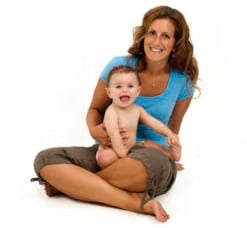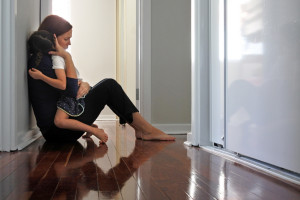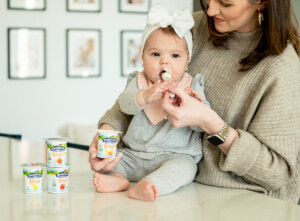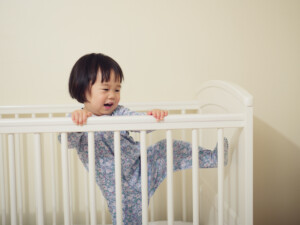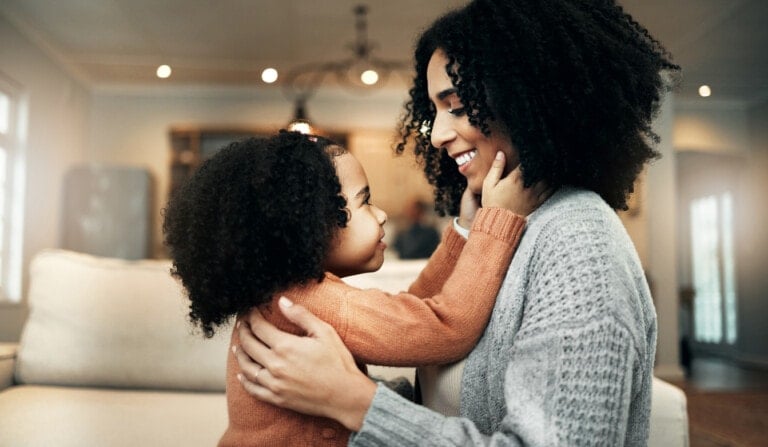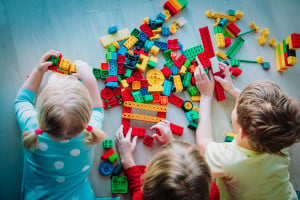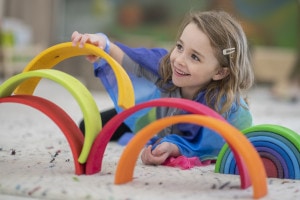Just like physical development and cognitive development start at birth, so does your baby’s emotional development. Emotional development, sometimes called mental health, refers to developing social skills and regulating emotions in babies. Understanding early emotional development is key in preventing mental health issues, such as depression and anxiety later on. Babies’ earliest experiences shape their brains so that future learning and development can occur. There are currently a lot of programs nationwide to address early mental health concerns.
There are some important things to consider in fostering healthy social-emotional development in young children.
1. A key component of a baby’s healthy social-emotional development is the ability to establish a close and secure bond with a caregiver. This attachment creates a foundation of security that sets the child up for a stronger sense of self-esteem.
You can begin to form a bond between you and your baby before they are even born by talking, reading, and singing to them in utero. Studies show that babies prefer mommy’s voice to any other sound because of familiarity.1 Also, it is very comforting to them. You can also bond with your newborn by doing skin-to-skin contact and baby massage, holding and comforting your baby when she is scared, hurt or upset, and responding to her by smiling and reassuring her. Signs of a healthy attachment are when your baby looks to you for reassurance, help, or comfort. Also, when your baby uses good eye contact, is interactive, and is more comfortable with parents than strangers.
2. As children develop, their emotional well-being supports growth in other areas, such as physical growth, literacy, cognitive development, and overall good health.
Young children who do not meet early social-emotional milestones are more likely to fall behind in the other important areas of development throughout their preschool and school-age years. Strong emotional health serves as a foundation for other important skills.
Approximately 9.5%–14.2% of children, from birth to five years old, experience emotional or behavioral disturbances, resulting in social and emotional development difficulties.2
Just as positive experiences create strong emotional health, negative experiences can cause adverse effects on brain development and children’s mental health. Children who experience “toxic stress” in the form of parental loss, substance abuse, mental illness, or even extreme poverty have higher rates of mental health disturbances as they get older.
3. A baby’s mental health is closely intertwined with their parent’s mental health. If parents’ own stressors inhibit them from healthy interaction and cannot meet their baby’s needs, their baby’s mental health and well-being will be affected.
Parents need to remember to take care of themselves first. If parents do not take care of their own needs and manage their stress, they cannot adequately care for their baby. Care for the caregiver is critical to a healthy, well-adjusted child and overall family wellness. Some stressors may be too much for one person to manage on their own. It may be necessary to ask for some help from family, friends, or even organizations in the community.
If sleep deprivation is becoming unmanageable. It is important to raise the white flag and ask for help from family and friends. Or, if the baby blues begin to turn into actual postpartum depression, it is important to seek professional help. If external stressors make it difficult to care for the baby, such as financial concerns or health issues, it is helpful to have other caring individuals nearby for support.
Emotional development is an important part of a baby’s overall wellness. Knowing this and ensuring that emotional development is healthy will help give babies the best start possible. This will set them up to be well-adjusted, self-assured, and confident.


